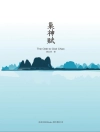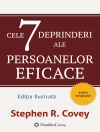This book explores conflict through the discerning lens of Integral Theory, applying Ken Wilber’s AQAL model to a real-life case study, the River Conflict. Coauthor Richard J. Mc Guigan was a mediator in this ongoing dispute over fishing rights on the Fraser River in British Columbia, a situation where commercial, recreational, and First Nations fishing interests clashed. Voices of the various stakeholders are featured prominently, giving a vivid sense of a seemingly intractable situation. Mc Guigan and Nancy Popp set the stage for their Integral analysis of the River Conflict, then move expertly through four chapters aimed at understanding the conflict from the four dimensions of human experience: individual, collective, interior, and exterior. The result is a powerful picture of just how ‘integral’ conflict is. This quadrant-by-quadrant analysis is well-punctuated by sidebar observations, insights, and tips for conflict practitioners or students, giving readers new to Integral Theory additional support in understanding and applying the AQAL model to their work.
Tabela de Conteúdo
List of Illustrations
Foreword
Ken Wilber and
Vern Neufeld Redekop
Acknowledgments
1. Introduction
2. The Conflict Field
3. Overview of the New Science of Conflict
4. The Fraser River Conflict
5. The Upper-Left Quadrant (UL)
6. The Lower-Left Quadrant (LL)
7. The Upper-Right Quadrant (UR)
8. The Lower-Right Quadrant (LR)
9. The Integral Vision of Conflict
Notes
Bibliography
Author Index
Subject Index
Sobre o autor
Richard J. Mc Guigan is Associate Faculty at the University of Victoria, in British Columbia, and is a scholar-practitioner in the conflict resolution and leadership development fields.
Nancy Popp is an independent scholar-practitioner in the adult development and leadership development fields.












